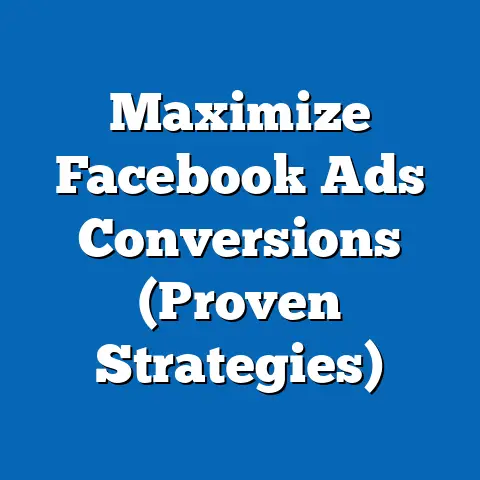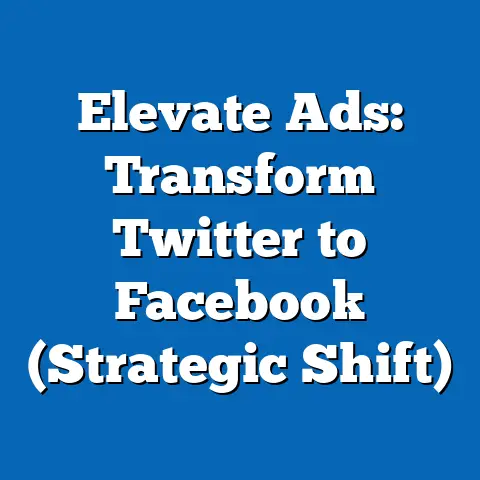Do Facebook Ads Track Incognito Browsing? (Insightful Analysis)
Have you ever felt like you’re being watched online?
Like that pair of shoes you browsed yesterday is now haunting you in every ad you see?
It’s a common feeling, and it’s amplified when we try to take back some control by using incognito browsing.
We think, “Aha!
I’m invisible now!” But is that really true?
Do Facebook ads really respect this choice for privacy, or is our data still being harvested under the surface, even when we think we’re being sneaky?
I remember the first time I realized the extent of online tracking.
I was researching a gift for my wife, something she had casually mentioned months prior.
Lo and behold, within hours, Facebook was flooded with ads for that exact item!
It was both impressive and unsettling.
That experience sparked my deep dive into the world of digital privacy, leading me to question everything, including the effectiveness of incognito mode.
This article is going to explore that very question.
I’ll break down how incognito mode actually works, how Facebook tracks us, and ultimately, whether those two worlds can intersect.
We’ll dive into the mechanics of online tracking, the ethical considerations, and what you can actually do to protect your privacy.
Let’s peel back the layers and find out the truth about Facebook ads and incognito browsing.
Understanding Incognito Browsing
Incognito browsing, private browsing, or whatever your browser calls it, promises a veil of secrecy as you surf the web.
In essence, it’s a mode offered by most web browsers (Chrome, Firefox, Safari, etc.) that prevents the browser from saving your browsing history, cookies, site data, or information entered in forms.
Think of it as a temporary amnesia for your browser.
So, how does it work?
When you open an incognito window, the browser creates a temporary profile that is separate from your regular browsing session.
This means that any websites you visit, searches you make, or forms you fill out during that session won’t be recorded in your browser’s history.
Cookies, those little data files websites use to track your activity, are also treated differently.
While you can still receive cookies during an incognito session, they are typically deleted when you close the window.
However, and this is a big however, there are several common misconceptions about incognito mode.
It doesn’t make you completely invisible online.
It primarily protects your privacy from others who use the same computer.
Your internet service provider (ISP), your employer (if you’re using a work network), and the websites you visit can still see your activity.
Incognito mode also doesn’t protect you from malware or viruses.
It simply cleans up your browsing data after you’re done.
According to recent studies, a significant portion of internet users rely on incognito mode.
A survey by DuckDuckGo found that over 60% of respondents use private browsing at least occasionally, primarily to avoid targeted advertising and prevent their browsing history from being tracked.
However, many users overestimate the level of privacy it actually provides.
Takeaway: Incognito browsing offers a limited form of privacy by preventing your browser from saving your activity.
It doesn’t make you invisible online, and it’s essential to understand its limitations.
The Mechanics of Facebook Ads
To understand whether Facebook ads can track incognito browsing, we first need to understand how Facebook ads work in general.
Facebook’s advertising platform is a sophisticated machine that relies on vast amounts of data to target users with relevant ads.
This data comes from various sources, including your profile information, your activity on Facebook and Instagram, and even your browsing activity on other websites.
Facebook collects data through several key mechanisms:
- Cookies: These are small text files that websites store on your computer to remember information about you, such as your login details or preferences.
Facebook uses cookies to track your activity across different websites that have integrated Facebook’s Pixel. - Facebook Pixel: This is a small piece of code that website owners can install on their websites to track user behavior.
The Pixel allows Facebook to see which pages you visit, what products you view, and what actions you take on those websites.
This information is then used to create targeted ads for you on Facebook. - User Behavior: Facebook also analyzes your behavior on its own platform, including the pages you like, the groups you join, the posts you interact with, and the searches you make.
This data helps Facebook understand your interests and preferences, allowing it to show you ads that are more likely to be relevant to you.
Facebook emphasizes the importance of user consent in its data collection practices.
When you sign up for Facebook, you agree to their terms of service and privacy policy, which outline how they collect and use your data.
Facebook also provides users with tools to manage their ad preferences, allowing you to control the types of ads you see and opt out of certain types of tracking.
However, many users are unaware of these tools or don’t fully understand how to use them.
I’ve personally seen the power of Facebook’s targeting capabilities firsthand.
In one campaign I ran for a local bookstore, we targeted users who had expressed interest in specific authors and genres.
The results were incredible, with a click-through rate that was significantly higher than our previous campaigns.
This experience reinforced the importance of understanding how Facebook collects and uses data to create effective advertising campaigns.
Takeaway: Facebook’s advertising platform relies on extensive data collection through cookies, the Facebook Pixel, and user behavior on the platform.
User consent is required, but many users may not fully understand the extent of data collection.
The Intersection of Privacy and Advertising
The relationship between user privacy and the advertising model is inherently complex, especially on social media platforms like Facebook.
On one hand, users value personalized experiences and relevant ads.
On the other hand, they are increasingly concerned about the amount of data being collected about them and how it is being used.
Facebook navigates privacy laws and regulations, such as the General Data Protection Regulation (GDPR) in Europe and the California Consumer Privacy Act (CCPA) in the United States, by implementing various privacy controls and transparency measures.
These regulations require Facebook to obtain explicit consent from users before collecting and using their data for advertising purposes.
Facebook also provides users with the ability to access, correct, and delete their data.
However, the ethical implications of tracking users, even with their consent, are still a subject of debate.
Some argue that it is unethical to collect data from users who are unaware of the extent of the tracking or who feel pressured to consent in order to use the platform.
Others argue that data collection is necessary to provide users with personalized experiences and relevant ads, which ultimately benefits both users and advertisers.
I remember attending a conference where a panel of experts discussed the ethical considerations of data collection.
One of the panelists, a digital privacy advocate, argued that users should have more control over their data and that companies should be more transparent about their data collection practices.
This discussion sparked a lively debate among the attendees, highlighting the complexity of the issue.
Takeaway: The intersection of privacy and advertising is a complex issue with ethical considerations.
Facebook navigates privacy laws and regulations by implementing various privacy controls and transparency measures, but the ethical implications of tracking users are still a subject of debate.
Do Facebook Ads Track Incognito Browsing?
Now, let’s get to the core question: Do Facebook ads track incognito browsing?
The short answer is: it’s complicated.
While incognito mode prevents your browser from saving your browsing history and cookies locally, it doesn’t prevent websites from tracking your IP address or other identifying information.
Here’s how it breaks down:
- Cookies: Incognito mode typically deletes cookies when you close the browser window.
This means that any cookies Facebook has placed on your computer during a regular browsing session will not be available during an incognito session.
However, Facebook can still place new cookies on your computer during the incognito session, which can be used to track your activity during that session. - IP Address: Your IP address is a unique identifier that can be used to track your location and browsing activity.
Incognito mode does not hide your IP address, so Facebook can still use it to identify you and track your activity. - Facebook Pixel: If you visit a website that has the Facebook Pixel installed, Facebook can still track your activity on that website, even if you are browsing in incognito mode.
The Pixel can identify you based on your IP address, your browser’s user agent, and other identifying information.
However, there are limitations to Facebook’s ability to track users in incognito mode.
For example, if you are not logged into Facebook during your incognito session, Facebook will have a more difficult time identifying you.
Additionally, if you use a VPN or other privacy tool to hide your IP address, Facebook will be unable to track your location.
According to a recent report by the Electronic Frontier Foundation (EFF), Facebook can still track users in incognito mode, but the extent of the tracking is limited.
The EFF found that Facebook can use cookies and the Facebook Pixel to track users, but it has a more difficult time identifying users who are not logged into Facebook or who use privacy tools to hide their IP address.
Takeaway: Facebook can still track users in incognito mode, but the extent of the tracking is limited.
Facebook can use cookies and the Facebook Pixel to track users, but it has a more difficult time identifying users who are not logged into Facebook or who use privacy tools to hide their IP address.
User Insights and Reactions
How do users feel about all this?
The general sentiment is a mix of resignation and frustration.
Many users are aware that their data is being collected, but they feel powerless to stop it.
They understand that targeted advertising is the price they pay for using free services like Facebook, but they are still concerned about the extent of the tracking and how their data is being used.
Anecdotally, I’ve heard countless stories from friends and colleagues about feeling “spied on” by Facebook ads.
They describe seeing ads for products they’ve only mentioned in passing or for websites they’ve only visited once.
These experiences can be unsettling, leading users to question their privacy and security online.
There’s also a growing trend of users taking steps to protect their privacy online.
Many are using ad blockers, privacy-focused browser extensions, and VPNs to limit the amount of data that is being collected about them.
Others are simply reducing their usage of social media platforms like Facebook, opting instead for more privacy-focused alternatives.
If users feel that their privacy is being violated, it can have significant implications for advertisers.
Users may become less likely to click on ads, less likely to purchase products, and less likely to trust the companies that are advertising to them.
This can lead to a decrease in the effectiveness of advertising campaigns and a decline in revenue for advertisers.
I’ve noticed a shift in my own behavior as well.
I’m more conscious of the websites I visit, the searches I make, and the information I share online.
I’ve also started using a VPN and a privacy-focused browser extension to limit the amount of data that is being collected about me.
These changes have made me feel more in control of my privacy, and I believe that more and more users will follow suit.
Takeaway: Users are increasingly concerned about their privacy online and are taking steps to protect themselves.
This can have significant implications for advertisers, who need to be more transparent about their data collection practices and more respectful of user privacy.
Conclusion
So, do Facebook ads track incognito browsing?
The answer, as we’ve seen, is a nuanced “yes, but.” While incognito mode provides a degree of privacy by preventing your browser from saving your history and cookies, it doesn’t make you invisible online.
Facebook can still track your activity through cookies, the Facebook Pixel, and your IP address, especially if you are logged into Facebook during your incognito session.
The tension between personalized advertising and user privacy is likely to continue to be a subject of debate.
As users become more aware of the extent of data collection, they will demand more control over their data and more transparency from companies like Facebook.
Advertisers, in turn, will need to find new ways to target users with relevant ads while respecting their privacy.
Ultimately, the responsibility for protecting your privacy online lies with you.
By understanding how incognito mode works, how Facebook tracks you, and the tools you can use to limit data collection, you can take control of your online experience and make informed choices about your privacy.
As you navigate the digital landscape, consider this: Are we truly willing to trade our privacy for the convenience of personalized advertising?
Or is there a better way to strike a balance between the two?
The answer, I believe, lies in ongoing dialogue, technological innovation, and a commitment to respecting user privacy.
The future of the internet depends on it.





